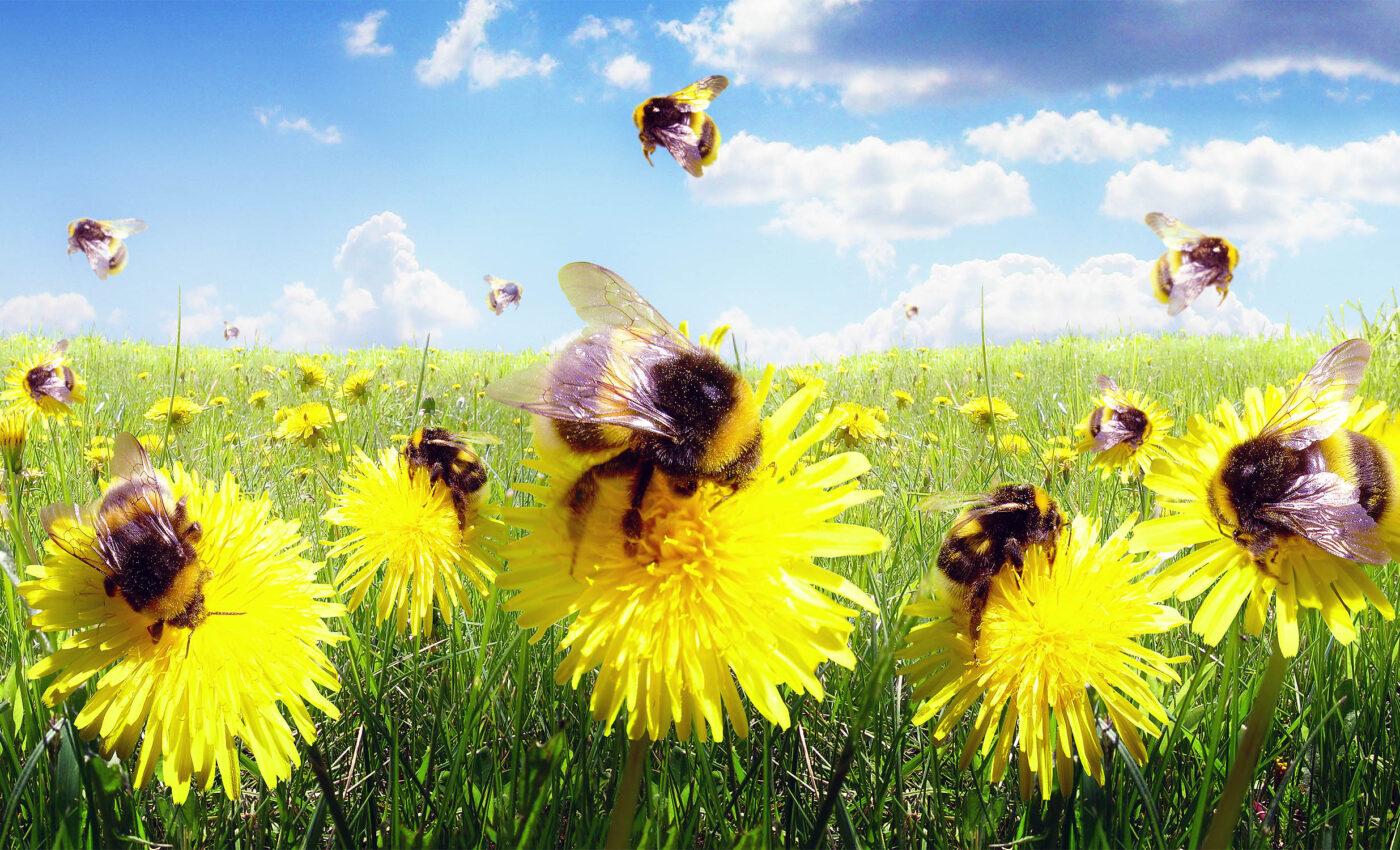
Saving pollinators like wild bees can boost food supply and income
In the realm of pollination, where the spotlight often shines on the industrious honey bee, known for its honey production, the critical role of pollinators like wild bees tends to be overshadowed.
However, the truth is that wild bees play a fundamental role in our ecosystem’s health. Along with other native pollinators, they are essential for the stability of our food supply.
Dr. Matthew Mitchell, a landscape ecologist with the faculties of forestry and land and food systems at the University of British Columbia, brings this issue to the forefront through his recent study published in Environmental Research Letters.
Dr. Mitchell’s research sheds light on the worrying decline of wild pollinator populations and its direct impact on farm productivity.
Role of wild bees and other pollinators
Wild pollinators are a diverse group that includes native bees like mason, carpenter, sweat, and bumblebees. Additionally, moths, wasps, beetles, and flies also play key roles. Remarkably, they are found everywhere in our environment.
In Canada alone, the diversity is staggering. There are over 800 species of native bees. Importantly, this count does not even include the myriad other pollinator types.
These creatures are essential, serving as the backbone for pollination across ecosystems. They pollinate a wide variety of crops, including fruits, vegetables, nuts, and oilseeds. To illustrate, blueberries, cranberries, buckwheat, canola, and orchard crops are just a few examples.
Moreover, their value extends beyond agriculture. Wild pollinators are pivotal in another crucial area: they preserve biodiversity. Through facilitating the reproduction of a wide range of plant species, they ensure ecological balance and diversity.
Declining wild pollinator populations
The decline in native pollinator populations has several causes. Habitat destruction and fragmentation lead the list, closely followed by widespread pesticide use. Additionally, the spread of parasites and pathogens plays a significant role.
Consequently, this decline poses a significant threat to the reproduction of native plant species and could lead to considerable reductions in crop yields.
As a result, farmers might face increased costs. This economic pressure could lead them to shift production away from pollinator-dependent crops. Such a shift would directly affect the availability and cost of fruits and vegetables in supermarkets.
Study’s findings on food production
Dr. Mitchell’s study highlights the critical role pollinators like wild bees play in Canadian agriculture. They aid in the pollination of crops that, notably, generate an annual farm income of nearly $2.8 billion.
This contribution from wild pollinators is substantial, capable of feeding the equivalent of around 24 million people.
Furthermore, the study, conducted in collaboration with Nature Conservancy Canada, utilized publicly available data. This data was used to estimate the potential increase in food production and farm income that could result from enhanced wild pollinator populations.
In provinces like Saskatchewan and Alberta, the absence of pollinator habitat near croplands is most pronounced. Therefore, improving wild pollinator habitats in these areas could significantly boost food production. Additionally, it could increase farm income by millions.
Actionable steps to reverse the decline
To counteract the decline in wild pollinator populations, targeted conservation efforts are essential. Restoring pollinator habitat in areas heavily reliant on wild pollinators and promoting sustainable farming practices are critical steps towards this goal.
On a community and individual level, urban gardens featuring pollinator-friendly plants and advocating for sustainable farming and habitat conservation can make a substantial difference.
Dr. Mitchell emphasizes that addressing the decline in wild pollinator populations could yield significant benefits. It could provide additional nutrition for an equivalent of 30 million people annually. Additionally, it has the potential to increase farmer income by up to $3 billion every year.
Future of wild bees and other crucial pollinators
Such actions are vital for ensuring the long-term health of native pollinators like wild bees. Furthermore, they play a crucial role in enhancing the sustainability and stability of global agriculture and food supply.
Without these efforts, farmers may have to resort to more costly methods to boost productivity or rely more heavily on honey bees.
In conclusion, the decline of wild pollinators represents a pressing issue that requires immediate attention and action.
Through targeted conservation efforts and promoting sustainable practices, we can protect these vital contributors to our ecosystem and ensure the resilience of our food supply.
Dr. Mitchell’s research not only highlights the critical role of wild pollinators but also offers a path forward, urging us to act before it’s too late.
The full study was published in the journal Environmental Research Letters.
—–
Like what you read? Subscribe to our newsletter for engaging articles, exclusive content, and the latest updates.
Check us out on EarthSnap, a free app brought to you by Eric Ralls and Earth.com.
—–













